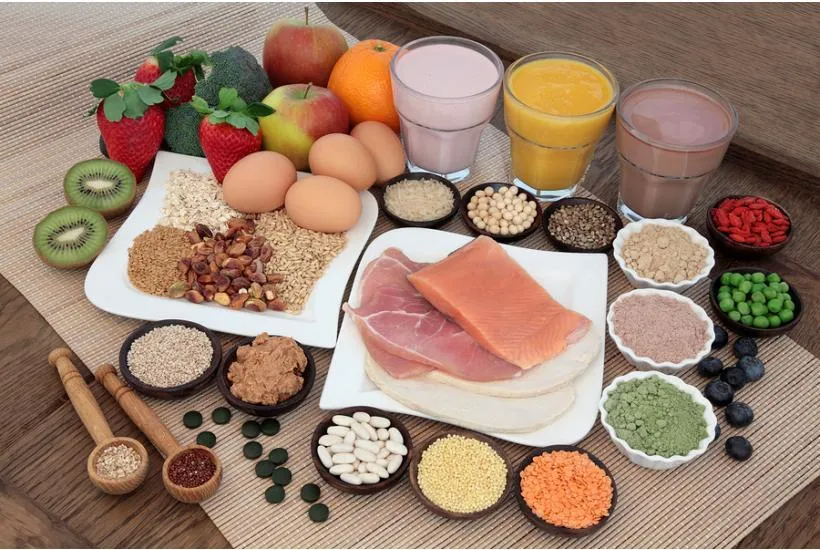Why All The Fuss About Protein?

This article was written for Bariatric Choice by Sharon Howard, R.D.
As you prepare for bariatric surgery, no doubt you have been told to keep your protein intake high. Current recommendations range from 60-120 grams a day, depending on your size. So, in order to eat 80 grams of protein in a day, you would have to intake 11 eggs, or a whole chicken, or ⅔ gallon of milk. You can see that will be difficult without the use of protein supplements that are easy to drink or add to your food.
After surgery, particularly in the first 2 months, your ability to eat or drink enough protein is limited. Your smaller size stomach “pouch” is a bit swollen from incisions so you need to be careful to have liquids for a few weeks and then move to pureed foods as your wounds heal, inside and out. During this time, you need help with protein intake by consuming protein supplements. As you progress through the first 6 months to a year, eating solid food, you still need to reach your protein goal, with the help of supplements.
Protein Quality
- High biological quality protein is in animal meats and products such as chicken, turkey, fish, seafood, beef, pork, eggs and dairy products.
- Soy beans, tofu and edamame are also complete protein found in plants.
- There are lesser amounts and quality protein in legumes (beans) nuts and quinoa.
In the first 2-3 months after surgery, a bariatric patient struggles to get all his/her protein needs in from these solid proteins, and so one must use some protein powders and drinks to reach a goal of an average 90-100 grams a day.
So what’s so special about protein?
- Protein is the only nutrient that repairs and builds tissue. You need to heal the wounds of surgery, so going into surgery with adequate protein and continuing the habit after surgery will foster a healthy recovery.
- Protein is essential for your immune system. Your ability to fight of infections is critical after a surgery, as well as during the flu season!
- Protein is what our muscles need to exist! Amino acids are the building blocks for our body mass, not only our muscles, but our liver, brain, skin blood , etc. To avoid having thinning hair during the rapid weight loss phase, be sure to get adequate protein.
- A protein rich diet can lead to improved body composition and increased metabolism. Muscle burns 8 times the calories that fat on your body does. As you lose the fat and retain the muscle, you can ensure long term weight maintenance with your lighter, lower fat body.
- Protein keeps you feeling full, and dampens blood sugar highs and lows. Eat some protein with carbohydrates and fat and you will be satisfied for longer.
- Protein fuels fat burning. As you lose weight, your body loses fat and muscle. To preserve your muscle tissue, consume adequate protein and do strength training exercise. You still need to have carbohydrate and fat in your diet, to spare the protein for its essential body functions. Do not be afraid to eat a balanced diet with healthy starches, fruits and vegetables, and healthy lipids.
Not all protein powders are created equal. Research rates whey protein isolate the best in protein quality, since it contains more leucine, an amino acid that is responsible for stimulating muscle development. Soy protein, casein, and egg white are also beneficial choices. Check the quality and amount of protein in the supplement you choose to enhance your diet with your dietitian. Sometimes a product’s advertisements may seem too good to be true, and it may not be. Poor quality protein may be “spiked” with nonessential amino acids to increase the amount of grams of protein per serving, and at a lower price. Track your protein intake daily to be sure you reaching your goals for the best surgery outcome.